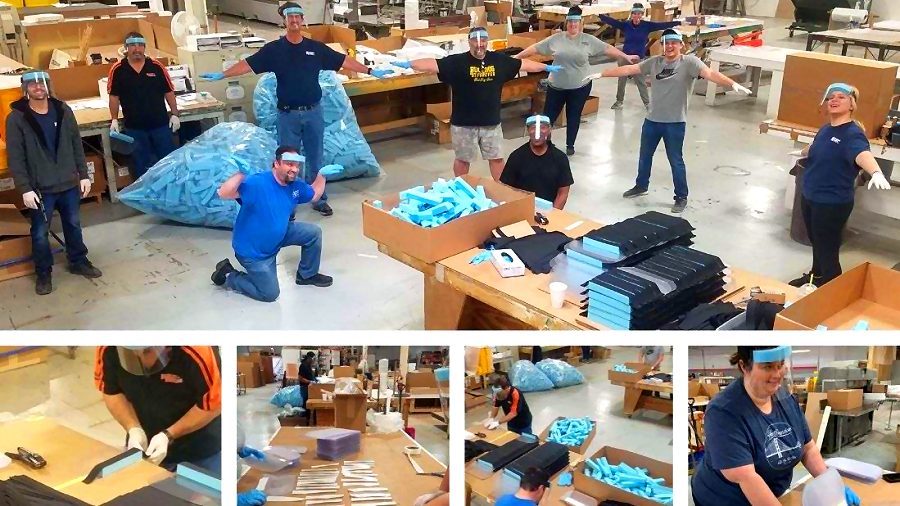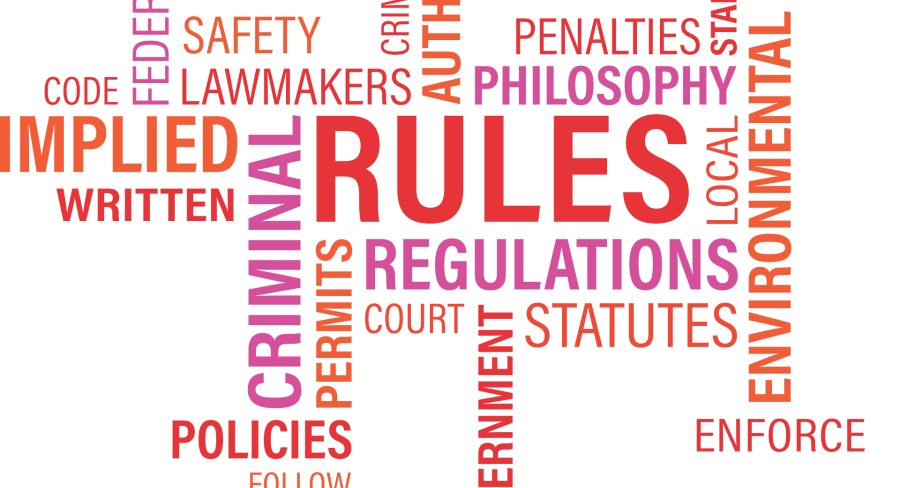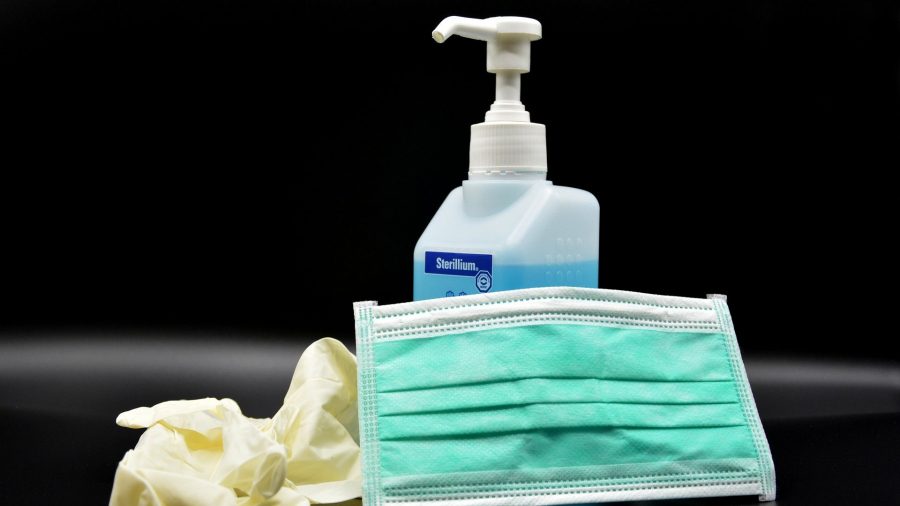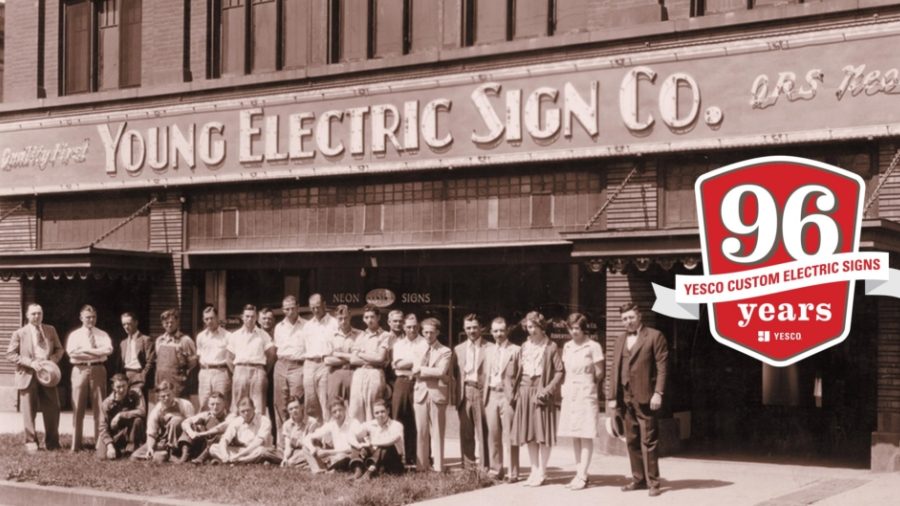Federal Heath Pivots for Covid-19
Stepping Up: Federal Heath Converts Manufacturing to Medical Supplies
By Tony Kindelspire • Published April 7, 2020 in SDG Magazine
Federal Heath announces the temporary conversion of its manufacturing capacity from making signs to making personal protective equipment (PPEs) for the medical industry.
“We understand the sacrifices and heroic efforts our doctors, nurses, medical staff and first responders are making in order to keep us safe,” says president and CEO Sid Rasnick. “We have teamed up with a health partner to manufacture and supply protective face shields in record time to the medical industry.”
Federal Heath says it will continue to practice and follow strict social distancing guidelines as put forth by the CDC, joining in nationwide efforts to protect both its employees and the public.
To watch a video of employees at the company’s Rochester Hills, Michigan, manufacturing plant die-cut and assemble protective face shields that the company will donate to medical professionals, click here.
To read the full story in SDG, click here.
Insurance & Covid-19 Claims – Update for Pandemic
Be Smart – Be Safe
April 13 – California Insurance Commissioner Ricardo Lara, ordered insurance companies to return insurance premiums to consumers and businesses and provide much-needed financial relief during the COVID-19 emergency. The Commissioner’s Bulletin covers premiums paid for at least the months of March and April — including the month of May if “shelter in place” restrictions continue — in at least six different insurance lines: private passenger automobile, commercial automobile, workers’ compensation, commercial multi-peril, commercial liability, medical malpractice, and any other insurance line where the risk of loss has fallen substantially as a result of the COVID-19 pandemic.
Be sure to check with your insurance broker to determine whether these refunds apply to your situation. Click here for more information.
In addition – The Worker’s Compensation Insurance Rating Board (WCIRB) proposed changes in response to the COVID-19 pandemic. The following brief summary, outlines the proposed regulatory changes. WCIRB expects to submit this special regulatory filing for approval to the California Department of Insurance (CDI) the week of April 20th. The CDI will schedule a public hearing to consider the filing, and once the Notice of Proposed Action and Notice of Public Hearing are issued, the WCIRB will post a copy in the Filings and Plans section of the WCIRB website. Source – WCIRB website:
Workers’ Comp Governing Committee Approves Special Changes in Response to COVID-19
In response to the impact of the coronavirus disease 2019 (COVID-19) pandemic on California employers and workers, the Workers’ Compensation Insurance Rating Bureau of California (WCIRB) Governing Committee voted unanimously to make changes that would affect several key areas:
Exclude COVID-19 Claims from Experience Rating
Claims arising directly from a diagnosis of COVID-19 with an accident date on or after December 1, 2019, would be excluded from the experience rating calculations of individual employers. Since the occurrence or non-occurrence of COVID-19 workers’ compensation claims incurred by an employer is unlikely to be a strong predictor of that employer’s future workers’ compensation claim costs, the inclusion of such claims in an experience modification calculation would not meet the intended goal of experience rating.
> Note: It is important to note that the claim can’t just be a potential Covid claim; there must be a documented diagnosis of COVID-19. This will apply to any claims with an occurrence date on or after December 1, 2019.
Exclude Payments to Employees Who Continue to Be Paid While Not Working
Payments made to employees who are continuing to be paid while not engaged in any work activities would be excluded from reportable payroll. This exclusion would apply while California’s statewide stay-at-home order is in place and for up to 30 days thereafter if the employee continues not to work. Excluding this payroll recognizes the extraordinary circumstances resulting from the stay-at-home order and the fact that employees not engaged in work activities have virtually no work-related exposure.
> Note: It will be important to document that the employee is not authorized to perform work of any kind for that period of time and that this is reflected in payroll records. Specific language is: “Employers must maintain records that document the change in duties and that segregate such payments during this time.”
Allow Assignment of Classification 8810 for Temporary Change in Duties
The temporary assignment of Classification 8810, Clerical Office Employees, would be allowed for employees whose job duties meet the definition of a Clerical Office Employee. This provision would apply while California’s statewide stay-at-home order is in place and for up to 60 days thereafter if the employee continues to meet the definition of a Clerical Office Employee, but does not apply to the payroll of employees whose payroll is otherwise assignable to a standard classification that specifically includes Clerical Office Employees.
> Note: Essentially, this means, for example, that employers will be allowed to reclassify someone who is normally not classified as a “Clerical employee” as a “Clerical employee” under Class Code 8810, for the time that employee is performing only duties that fit the Clerical Office class code 8810. Again, maintain records establishing the work site/environment, duties, dates, etc.
Some Comp Guidance in Response to COVID-19.
- Make sure to document now, showing that you are paying any employee who is not working, that they are not authorized to work. Keep clear records of that payroll, to be excluded from your audit.
- Document the physical site and work characteristics of an employee working remotely, to ensure they qualify for Clerical code 8810. Also consider ergonomic issues regarding their work stations.
- Make sure you are setting the work hours for remote employees, so Workers’ Compensation claims occurring while they are remote; will be occupational only.
- Make sure any claims that are investigated as potential COVID-19, or become actual COVID-19 claims; are coded properly by your claims adjuster to the WCIRB so they will not be counted against future Experience Modification calculations.
- Make sure your protocols are clear for responding to post-termination claims for any laid off employees.
- You may have previously injured employees who are afraid to go in for medical treatment, or may have problems trying to get treatment due to COVID-19 protocols by hospitals and clinics. The Division of Workers’ Compensation has made changes to telehealth rules, to help injured workers get treatment remotely. You may want to follow up with your injured workers to make sure they are getting the treatment they need.
PAYCHECK PROTECTION LOAN INSIGHTS
Be Smart – Be Safe
Anecdotal evidence suggests that upwards of 70% if sign industry shop owners have applied for this program, and while funds have now run out, those who receive their PPP loan in the coming weeks need to be aware of some conditions attached to this money. CSA is sharing this information to help you be smart and stay safe.
Five Things Every Paycheck Protection Program Borrower Should Do After Receiving A Loan
“The Paycheck Protection Program (“PPP”) is the crown jewel of the Coronavirus Aid, Relief, and Economic Security Act (the “CARES Act”). The CARES Act allocates $349 billion to the PPP loan initiative in an effort to stabilize small businesses during the COVID-19 outbreak and to allow them to retain their workforces while weathering the Coronavirus storm.”
1) Ensure That The PPP Funds Are Used Only For Allowable Uses
The CARES Act requires that a PPP loan recipient certify that the funds will be used for purposes that are authorized under the act. In the rush to claim PPP funds, recipients should not lose sight of the legal restrictions on the use of those funds.
If a PPP loan is used for unauthorized purposes, the loan can be converted into a recourse liability. That is, the SBA may be able to come after the loan recipient or its shareholders, members, or partners for an unpaid loan if they use the PPP funds for unauthorized purposes.
2) Work Closely With Tax Professionals To Maximize The Forgivable Amount
The SBA, in its April 2, 2020 Interim Rule, announced that no more than 25% of the loan forgiveness amount can be attributable to non-payroll costs. While that requirement does not appear on the face of the CARES Act itself, the SBA and Treasury imposed this requirement to align the finite resources available to fund the PPP loan program with the overriding Congressional intent to keep workers paid and employed.
COVID-19 Construction & OSHA Update
Be Smart – Be Safe
The hammer comes down on construction to slow coronavirus spread among workers
By Sarah Parvini, Los Angeles Times
Amid concerns that construction workers are being exposed to coronavirus, Los Angeles Mayor Eric Garcetti announced new guidelines that will require all construction sites to create a “COVID-19 exposure control plan.” Protocols should include symptom checks, physical distancing, hygiene and decontamination, Garcetti said. READ MORE
RELATED NEWS:
“Due to the impact on workplace conditions caused by limited supplies of N95 FFRs, employers should reassess their engineering controls, work practices and administrative controls to identify any changes they can make to decrease the need for N95 respirators. If respiratory protection must be used, employers may consider use of alternative classes of respirators that provide equal or greater protection compared to an N95 FFR, such as National Institute for Occupational Safety and Health (NIOSH)-approved, non-disposable, elastomeric respirators or powered, air-purifying respirators. When these alternatives are not available, or where their use creates additional safety or health hazards, employers may consider the extended use or reuse of N95 FFRs, or use of N95 FFRs that were approved but have since passed the manufacturer’s recommended shelf life, under specified conditions.” [From FED OSHA]
https://www.osha.gov/news/newsreleases/national/04032020
Also — Cal/OSHA has published this strategy guidance regarding respirator shortages:
https://www.dir.ca.gov/dosh/coronavirus/Cal-OSHA-Guidance-for-respirator-shortages.pdf
Among other points: “Title 8 CCR Section 3380 permits employee-provided PPE as long as the employer ensures the PPE complies with Cal/OSHA standards and is properly maintained. Employers should not prohibit employee-provided PPE in compliance with Cal/OSHA standards when the employer is unable to provide it. Disciplining an employee for choosing to bring compliant PPE to work could subject the employer to claims of retaliation claims under Sections 1102.5 and 6310 through 6312 of the Labor Code.”
COVID-19 Tax / Jobs Update
Be Smart – Be Safe
Dear CSA Members,
Effective April 3, 2020
- California Loan Guarantee — Federal government offering first-come, first-serve loans of up to $10 million for small employers + Governor Newsom announces $50 million in loan guarantees for small businesses that may not be eligible for federal relief
- Job Openings in Critical Industries — Governor joins Bitwise Industries in announcing OnwardCa.org, a platform connecting COVID-19 displaced workers with over 70,000 job opportunities in critical industries
- Tax Filing Extension — The executive order allows the California Department of Tax and Fee Administration (CDTFA) to offer a 90-day extension for tax returns and tax payments for all businesses filing a return for less than $1 million in taxes. That means small businesses will have until the end of July to file their first-quarter returns.
- Tax Relief — California is also allowing small businesses to defer payment of sales and use taxes of up to $50,000, for up to 12 months.
Click here for more info.
COVID-19 Emergency Relief Funds
Be Smart – Be Safe
Dear CSA Members,
California Sign Association member businesses are a diverse group. Though all are related somehow to the Sign Industry, each is unique and therefore will have different needs that come with the COVID-19 Pandemic.
HERE’S HOW TO APPLY FOR COVID-19 EMERGENCY RELIEF FUNDS
Three programs applicable to employers with less than 500 employees:
- The Paycheck Protection Program. Per the SBA —
“This program is for any small business with less than 500 employees (including sole proprietorships, independent contractors and self-employed persons), private non-profit organization or 501(c)(19) veterans organizations affected by coronavirus/COVID-19.” The Paycheck Protection Program is a loan designed to provide a direct incentive for small businesses to keep their workers on the payroll. SBA will forgive loans if all employees are kept on the payroll for eight weeks and the money is used for payroll, rent, mortgage interest, or utilities. SBA Lenders may begin processing applications starting April 3. The Paycheck Protection Program will be available through June 30, 2020. Click Here for the details. Continue Reading
COVID-19 Construction Update
Be Smart – Be Safe
7 Bay Area Counties Shut Down Construction Jobs
Alameda, Contra Costa, Marin, Santa Clara, San Francisco, San Mateo counties, and the City of Berkeley have issued a new shelter in place order, that limits most construction. The order takes effect 11:59 p.m. March 31, 2020; and is currently effective until May 3, 2020.
Following are the limitations on construction:
Most construction-residential and commercial-is prohibited. Exceptions are made for healthcare facility construction directly related to the COVID-19 response; affordable housing; public works projects when designated as essential by the lead governmental agency; shelters and temporary housing; projects necessary to provide critical services to certain vulnerable individuals; construction necessary to secure an existing construction site; and limited essential residential or business repairs.
You can click here to see a copy of the Alameda County order, which is similar for all.
Note: ISA has created resources for those in the sign industry considered an “essential business” that must remain open to continue to serve vital infrastructure, manufacturing and retail services.
- Implement a policy to have only employees working on these “essential” projects coming into work, and designate them as essential using this template which the employee should carry with them getting to- and from work.
- Get documentation from your “essential business” customers that they are in need of signs and graphics from your business to communicate with the public using this template.
CARES ACT EMPLOYER REQUIREMENTS
Be Smart – Be Safe
|
|
Message from CSA President
Be Smart – Be Safe
CSA Members,
Whether you fall under the “Essentials” category of business, or have your facilities temporarily closed due to the COVID-19 Pandemic, PLEASE Be Smart, Be Safe.
Collective Humanity Will Make Us Stronger!
Your California Sign Association (CSA) staff is monitoring information coming in from Health Professionals and numerous Government Entities, that may affect your personal and professional well being. Regular email blasts will be sent to CSA members with this information. We ask that you take a moment to review this material and stay informed. If you have additional resources that you would like to share with your CSA family, please let us know.
Should you have additional contacts from your company, that you would like added to the CSA data base, please forward their names and email addresses to Cheryl Flahive at cflahive@calsign.org; she will make certain to get the Be Smart Be Safe email blasts to them as well.
Thank you,
Rob Riley
CSA President, 2019-2020
100 YEARS TO CELEBRATE FOR YESCO
YESCO, (Young Electric Sign Company) Headquartered in Salt Lake City, Utah, a member of the California Sign Association since 1971, celebrates 100 years in business!
Ken Person, Vice President/California Region Manager / YESCO, currently serves on the California Sign Association Board of Directors as 2nd VP.
Today YESCO represents one of North America’s largest and most-recognized sign companies thanks to its historic roster of iconic signs. The family-owned and operated company began in 1920 in Ogden, Utah when founder Thomas Young borrowed $300 from his father to start the business. It began specializing in wall-painted advertisements, gold-leaf window lettering and coffin plates. Read More
To celebrate the milestone anniversary, YESCO will host one hundred-year anniversary events in cities including:
- Salt Lake City – Feb. 20
- Denver – Feb. 28
- Los Angeles – March 6
- Phoenix – March 14
- Reno, Nevada – March 16
- Las Vegas – March 20
- Boise, Idaho – March 27
Congratulations YESCO – We are proud to have you as members and we are thankful for your industry support over the years!












